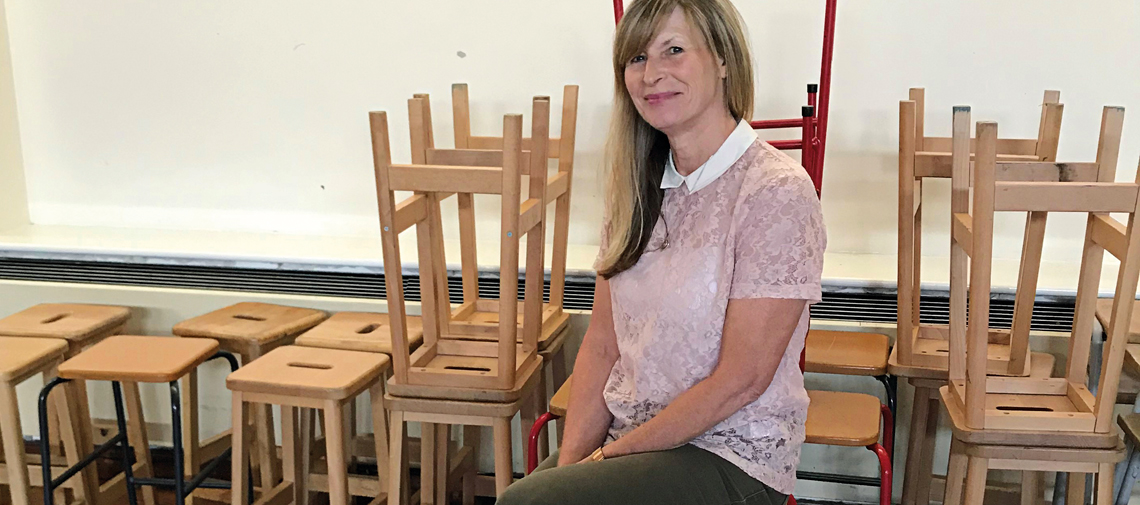School fundraiser Amanda Burgess shares her story

I have worked with children and young people since 1987, and was in the voluntary sector until 2009. My first real taste of fundraising was as an afterschool club manager, working just 20 hours a week to deliver the service, cover the paperwork, manage staff and raise money to fund the club. I was always looking for funding to take the children on activities during the summer holidays, as many of them had never had a holiday or even visited the seaside.
I then became the part-time children’s playwork manager at Lewes YMCA, starting up the childcare offer with an afterschool club and playschemes every holiday. I was able to develop my fundraising skills, and had the opportunity to do a playwork degree at Brighton University. This all helped my confidence, and my networks grew. We were always fundraising for new equipment, and each time we had a new opportunity, or a child with new needs joined us, we would put together a funding bid.
This background helped so much when I moved to the public sector and a fundraising role in secondary education. I kept the same mindset but quickly found that schools operate very differently, and there are a lot more barriers to overcome! Schools are key to the community, yet they lack outward-facing staff. Therefore, it’s vital to spend time getting to know key businesses in your area. I got named contacts, invited them to events, and built on the relationships and my networks. Lewes Priory is next door to Lewes’s football club, the leisure centre and South Downs College – and these were first on the list.
I knew it was important to get our headteacher onboard, to align my activities with the school priorities for the coming year and to discuss my plans with the governors. We started with a small project (converting a space under our stage into changing rooms for drama), and I was able to secure funding from a local trust for this.
Then we moved on to a bigger project: refurbishing both of the DT food rooms. Our PTA has charitable status and agreed to support the project financially (giving £30,000). I used this as match funding to apply for other grants, raising an additional £50,000. The PTA’s charitable status also means we can access other funding pots which are only open to charities, so we can work together to achieve our targets.
I usually have a range of small projects to keep things ticking along, combined with grants and donations. For instance, most local supermarkets and stores have a charitable scheme and I apply for regular slots. In fact, our local supermarkets often approach us when they do not have many applications, as they know we always have something to apply for! Parents will also have their own networks and contacts, so make sure you use them.
If you do not have an Ethical Sponsorship Policy, then this is something you may need to create to ensure that you do not link the school with organisations or businesses which are unsuitable. This also considers any large sponsors or legacies which may be offered to the school, and how the school will acknowledge them. Our policy has been adopted by the governors and is reviewed annually.
- Amanda Burgess works part-time as community liaison and income generating manager at Priory School, Lewes
More from Amanda Burgess

